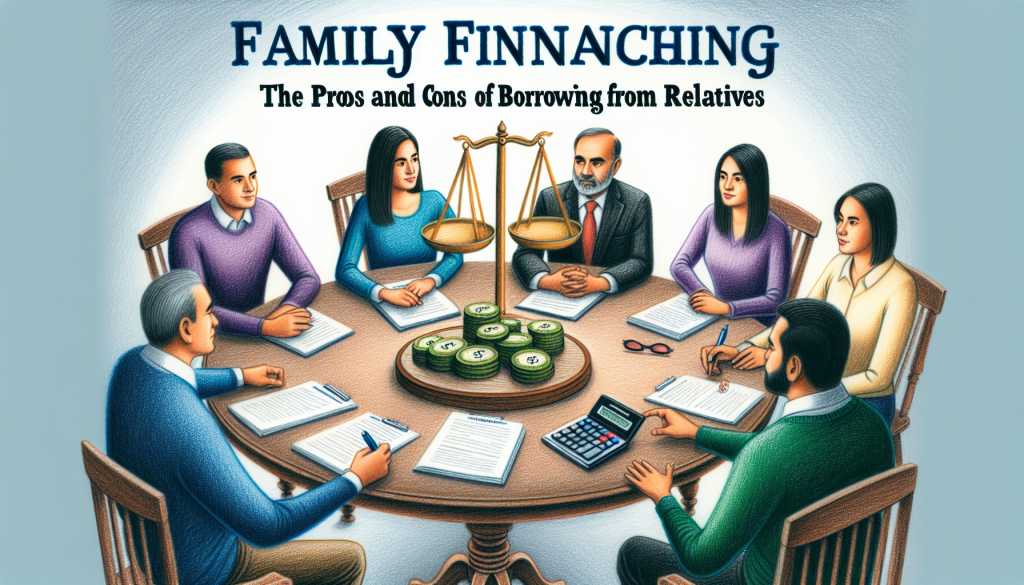
Family Financing: The Pros and Cons of Borrowing from Relatives
Borrowing money is a common and often necessary part of life. Whether it’s for buying a home, starting a business, or simply managing unexpected expenses, many of us turn to banks and financial institutions for help. However, there is another potential source of funding that is often overlooked – our own family members. Family financing, or borrowing from relatives, can seem like an attractive option, but it’s important to carefully consider the pros and cons before taking this route. In this article, we’ll dive into the potential benefits and drawbacks of borrowing from relatives.
Pros of Borrowing from Relatives
1. Lower Interest Rates
One of the biggest advantages of borrowing from a family member is the potential for lower interest rates. While banks and financial institutions have strict policies and often charge high interest rates, your family members may be willing to lend you money at a lower rate or even interest-free. This can save you a significant amount of money in the long run.
2. Flexible Repayment Terms
Another benefit of borrowing from relatives is the flexibility in repayment terms. Unlike traditional lenders, your family members may not require a strict repayment schedule or impose penalties for late payments. This can be especially helpful if you may have trouble meeting the repayment requirements of a traditional loan.
3. No Credit Checks
When you borrow from a bank, your credit history and score will be closely scrutinized. This can be a challenge for those with less-than-perfect credit. However, when borrowing from family, they are more likely to focus on your character and trustworthiness rather than your credit score. This can make it easier to secure a loan, even if your credit isn’t great.
Cons of Borrowing from Relatives
1. Strained Relationships
While borrowing from family may seem like a convenient option, it can also put a strain on relationships. Money can be a sensitive topic, and if the loan isn’t repaid on time or in the agreed-upon manner, it can cause resentment and tension between family members. This can be especially damaging if the loan is between close family members, such as parents and children.
2. Lack of Legal Protection
Unlike traditional loans, family loans are often made without any legal documentation. This means there is no legal recourse if the borrower fails to repay the loan. As a result, family lenders may feel taken advantage of or may choose to not lend money in the future due to a lack of legal protection.
3. Potential for Misunderstandings
When borrowing from family, it’s easy for misunderstandings to arise. It’s important to have a clear and detailed repayment plan in place to avoid any confusion or disagreements. This may include the amount borrowed, interest rate (if any), repayment schedule, and consequences for late or missed payments.
Is Borrowing from Relatives Right for You?
Ultimately, the decision to borrow from family should be carefully considered and based on your individual circumstances. It’s important to weigh the pros and cons and have open and honest communication with your family members. If you do choose to take this route, make sure to treat the loan as seriously as you would with a traditional lender to avoid any potential negative impacts on your relationships.
In conclusion, family financing can be a helpful and convenient option for some, but it’s important to carefully consider both the pros and cons before making a decision. With clear communication, trust, and responsible borrowing, a family loan can be a positive experience for everyone involved.
